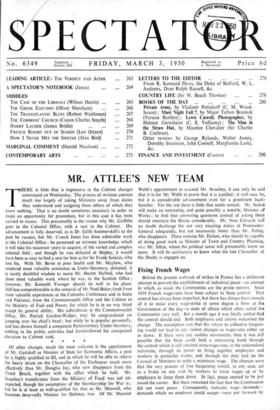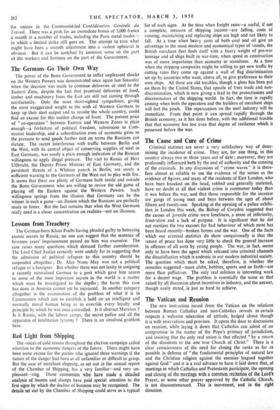Fixing French Wages
Behind the present outbreak of strikes in France lies a deliberate attempt to prevent the establishment of industrial peace—an attempt in which, as usual, the Communists are the prime movers. Since 1939 French wage-rates have been subject to State control That control has always been imperfect, but there has always been enough of it to make every wage-strike in some degree a blow at the Government of the day—a state of affairs which often suited the Communists very well. But a month ago it was finally settled that the control should end. Both employers and unions welcomed the change. The assumption was that the ieturn to collective bargain- ing would not lead to any violent changes in wage-rates either up or down. If there were any sudden movements, then it was still possible that the State could lend a restraining hand through the control which it still retained over.wage-rates in the nationalised industries, through its power to bring together employers and workers in particular trades, and through the duty laid on the Council of Ministers to settle a minimum wage. The chances were that the very process of free bargaining would, in any case, act as a brake on any rush by .workers to force wages up or by employers to force them down In fact, peace seemed to be just round the corner. But there remained the fact that the Communists did not want peace. Consequently fantastic wage - demands— demands which no employer could accept—were put forward by the unions in the Communist-led Confederation Generale du Travail. There was a push for an immediate bonus of 3,000 francs a month in a number of trades, including the Paris metal trades— in which a limited strike still goes on. The attempt to turn what might have been a smooth adjustment into a violent upheaval is obvious. But it can be scotched by common sense on the part of the workers and firmness on the part of the Government.



































